© 2023 Olga López
© 2023 Urantia Association of Spain
Newsletter of the Urantia Association of Spain
Light and Life — April 2023
¶ In this number
- Editorial – April 2023
- Works – our recommendations of the month
- History and teachings: Chronicle of the life of Jesus
- A Children’s Guide to The Urantia Book: Jesus at Thirteen
- Other spiritual growth books
- Video – our recommendation of the month
- Navigating through life – Infinite intelligence
- My favorite paragraph
- Urantia Questionnaire: Omar Delgado
- UBIS “In Focus” Presentation Series
- New courses from The Urantia Book International School (UBIS)
- In memory: Seppo Kanerva (1943-2023)
- About the Light and Life newsletter
¶ Editorial – April 2023
M. José Sánchez Santamaría
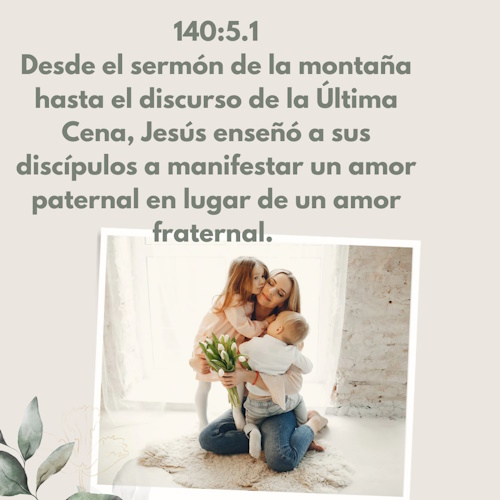
Once again, dear readers of this newsletter, we meet and reflect together on The Urantia Book and its amazing teachings. And once again we are approaching the celebrations of Holy Week. A few days of vacation, holidays, with various processions through Spain, religious services, etc. In the Jewish solar calendar, the beautiful month of Nissan has now begun, the first of the year and, with it, spring. The beginnings are externalized and sprout, the winter mists are gone… It is a wonderful moment to renew ourselves inside.
That young man was dirty, alone and hungry. Very hungry. Such was his hunger that he felt his anguish overflowing in silent cries. She was crying because she was reminded of her deplorable situation and her heart was breaking. He would cry himself exhausted and fall asleep.
He, who had dreamed of traveling and touring the world! He who had lived like a prince and now lived like a beggar among pigs!
One morning, while he was feeding the pigs, he put a carob in his mouth. Victim of a hunger that drove him crazy, he ate another and another, until he felt satisfied. Shortly after, between sad retchings, he vomited everything.
With nostalgia welling up throughout his body, he remembered the patio with the lemon trees, the well with the vine, the pigeons on the roof, he closed his eyes and huddled in a corner.
This is how the days went by: he worked, slept, ate something, cried… Little by little he moved away from himself and no longer remembered who he really was. It became brutalized, became feral, and shrank more and more.
But one morning there was a curious and strange silence. One by one the pigs stopped grunting and snouting and swallowing and stared at him. They looked at this strange man, disheveled and with a sad silhouette. And with that silence her mind clicked, stopped. The young man began to think. It had been a while since she had, but the moment she could think, she realized something that hadn’t occurred to her before: I’m going back to my father’s house. It started up immediately. He left behind the stench, the boss’s insults, the hovel where he had lived those years. He was leaving for his home, for freedom, to be himself again.
Many, many times during his years of teaching, Jesus told and retold this story of the prodigal son. This parable and the story of the good Samaritan were his favorite means of teaching the love of the Father and the neighborliness of man. (UB 169:1.16)
¶ Works – our recommendations of the month
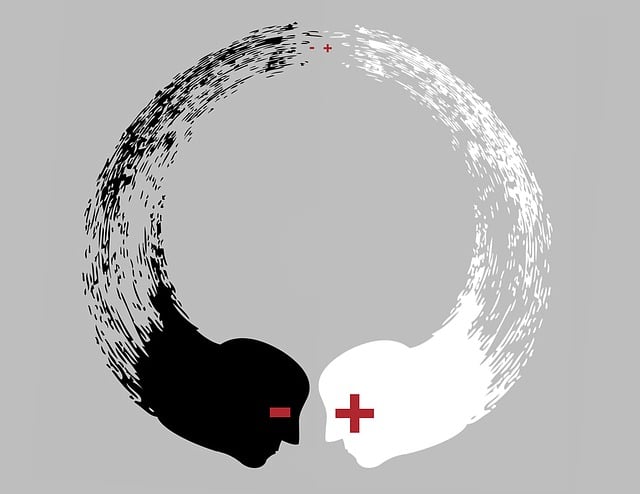
The Dual Nature of Supremacy (Linda Buselli) (also on the association’s website)
In the author’s words, “supremacy must comprise all finite possibilities and indicates that it must be an experience at all levels of any given possibility, from one extreme to the other, from a quasi-absolute subinfinite to its opposite.” He then takes a quick tour of the expression of this concept in The Urantia Book in the figure of Creator Son/Divine Minister couples and other dual relationships that manifest at the finite level and contribute to the completion of the Supreme.

Neutrinos (author unknown) (also on the association’s website)
Although the science that appears in The Urantia Book is very restricted to knowledge from the 1930s, it does contain knowledge unknown to scientists at the time, but discovered decades later. An example of this is the existence of neutrinos referred to in this fragment: “Electro-gravitational changes give rise to immense amounts of small particles devoid of electrical potential and that rapidly escape from the solar interior” UB 41:8.3 . Not only that: in the book the developers tell us that these particles can cause “the collapse of a gigantic sun in a few days”, something that could only be observed until 1987. In this article, the author reviews how the science to confirm what the revelators tell us in The Urantia Book about it.

Reflections on the parable of the mustard seed (Olga López) (also on the association’s website)
In the words of the author: «The parables of Jesus do not have a single interpretation, but serve to evoke in us images and elevated ideas, and help us to discern the way to progress spiritually… The parable of the mustard seed is one of the best known that Jesus used when referring to the development of the kingdom of heaven in the hearts of men. Precisely to delve into the meanings that this parable evokes for us, the author goes through all the references that we can find in the fourth part of The Urantia Book and reviews the statements that are linked to the comparison of the kingdom of heaven with the mustard seed. Because “The mustard seed is truly the smallest of all seeds, but when it has grown it is the largest of vegetables, and becomes a tree.” UB 151:4.2
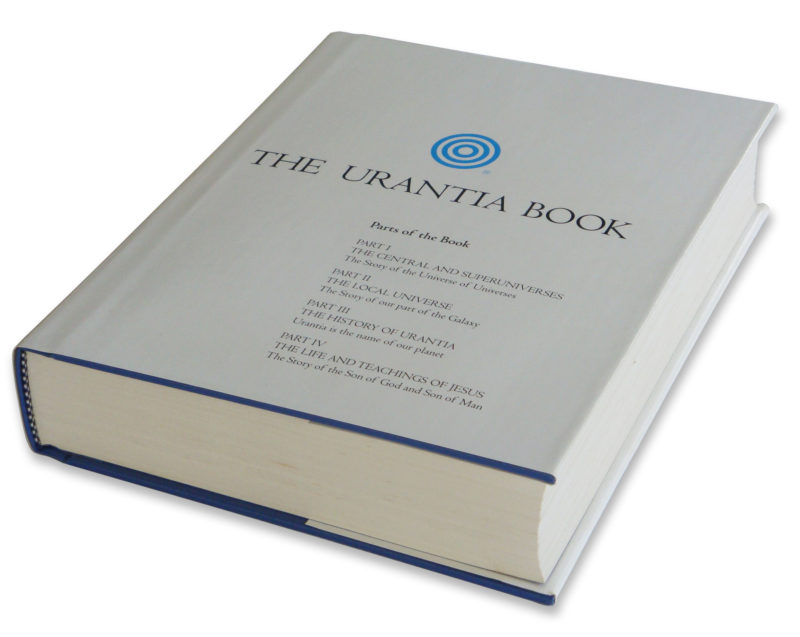
History of the Urantia Movement (William S. Sadler) (also on the association’s website)
The origins of the documents that gave rise to The Urantia Book are a matter of curiosity to many people. In this article, not only a general review of the revealing process is made, but also a brief historical tour of the genesis of the organizations that emerged around the book and how a community was formed around the teachings of The Book of Urantia.
¶ History and teachings: Chronicle of the life of Jesus
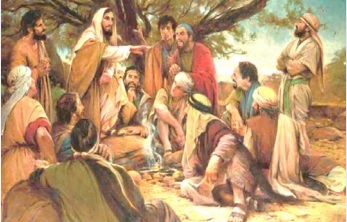
JOURNALISTIC ACCOUNT OF THE LIFE AND TEACHINGS OF JESUS ACCORDING TO THE URANTIA BOOK
We present to you the following installment of the chronicles of the life of Jesus, which on this occasion contains what the revelators tell us in paper 143 (The passage through Samaria). Inside the PDF you will see a button from where you can access the text of the paper from the Urantia Foundation website.
¶ Children’s Guide to The Urantia Book: Jesus at Thirteen
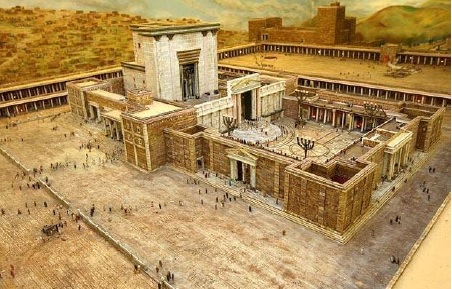
We continue to review the secondary work A Children’s Guide to The Urantia Book, by Mary Livingston. This is the next chapter, dedicated to the time when Jesus was thirteen years old, and it begins like this:
“Another little brother of Jesus was born, they called him Amos. Jesus and Mary thus completed eight children: Jesus, thirteen, James 9, Miriam 8, Joseph 6, Simon 5, Martha 4, Judah 2, and baby Amos.”
Download the entire chapter in PDF format
¶ Other spiritual growth books
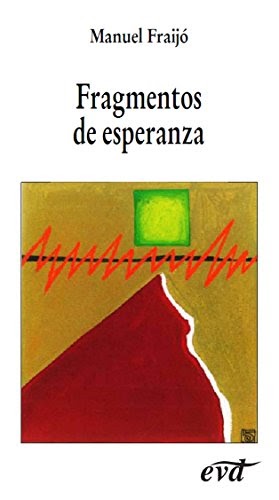
Fragments of hope (Manuel Fraijó)
The author, a doctor of philosophy and theology, links hope with reflection in this book. Well, “only when the immediate completely kidnaps the life of man and he, forgetting his personal dignity, surrenders to all the winds, the decline of hope is announced.” The book reviews the reflections on hope of well-known and lesser-known philosophers and, of course, it also deals with religions and theologies. But, after this review, the author prohibits himself from taking stock of the hope of others, since each one must give an account of his hope, one by one. A book, in short, in which philosophy and religion go hand in hand, which can be enlightening for those looking for an example of harmonization between the two.
¶ Video – our recommendation of the month
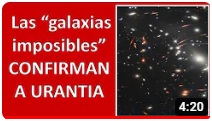
The Confirmation of The Urantia Book (Urantia Writings Studies)
There are many surprises that the data provided by the James Webb telescope have brought. Among them, the discovery of “impossible” galaxies (6 very massive early galaxies) that are much older than the age of the universe, as established by science. In this short video there is a brief summary of the news that deals with this finding, and how, step by step, they are agreeing with The Urantia Book regarding the age of the universe and also the levels of outer space.
¶ Navigating through life – Infinite Intelligence

What is an infinite intelligence?
There is no theologian who does not define it; I prefer an example.
The steps that a man takes, from the day of his birth to the day of his death, draw an inconceivable figure in time.
The Divine Intelligence intuits that figure immediately, like that of men a triangle.
That figure (perhaps) has its determined function in the economy of the universe.
(The mirror of enigmas, Jorge Luis Borges)
¶ My favorite paragraph
Montserrat White

There is no sentence from The Urantia Book that does not contain a pearl. Sometimes that pearl is hidden and you have to scratch to find it; others, as is the case, that pearl shines like a sun and it is impossible to hide so much light and so much beauty.
Mercy is the natural and inevitable offspring of goodness and love. The good nature of a loving Father could not possibly withhold the wise ministry of mercy to each member of every group of his universe children. Eternal justice and divine mercy together constitute what in human experience would be called fairness. (UB 2:4.4)
MERCY is a word that contains a greatness that very few come to glimpse. We tiptoe over it, but we must bear in mind that mercy is the natural fruit of the union between goodness and love, and we must offer that mercy based on the damage obtained, regardless of where it comes from.
But beware! Let us not confuse mercy with sorrow or pity.
Mercy is simply justice tempered by that wisdom which grows out of perfection of knowledge and the full recognition of the natural weaknesses and environmental handicaps of finite creatures. (UB 2:4.1)
Mercy is the supreme brotherly quality. What would a loving father not do for his beloved son!
We have the clearest example in Lucifer, who was a brilliant primary Lanonandek Son of Nebadon, a brilliant and perfect creature who succumbed to evil and sin, but even so and despite everything his Creator Father has always offered him mercy.
Being merciful implies being very generous in an altruistic LOVE and having a big heart, but not only for our children.
We cannot think that due to our finite condition we do not have the capacity to offer mercy to others. Mercy does not wear out or disappear with use, quite the contrary. The Father, in his infinite wisdom, has endowed us with values that often lie dormant within us.
Wanting to do the Father’s will, wanting to be like Him, is also awakening to mercy. It’s waking up to LOVE.
¶ Urantia Questionnaire: Omar Delgado

Omar Delgado is a Colombian reader currently residing in Sweden. She is 34 years old, a nursing assistant by profession. Marital status: free union.
1. How did you get to The Urantia Book and why do you think you found it?
I found the book in a great search for the book itself, as a child I heard about it, in my adolescence I looked for it and found it next to the school where I studied. It was a great emotion because I knew and knew the meaning of the book for humanity.
- What was your first impression when reading it?
I cried reading it, I was excited to have it.
- At what point in the reading (document, sentence, etc.) did you accept that The Urantia Book is really what it claims to be?
The teachings of the book are not told by any other book, the spiritual hope of other worlds after this life convinced me that it is a revelation to humanity.
- How has The Urantia Book changed your life?
My outlook on life has changed.
¶ UBIS “In Spotlight” Presentation Series
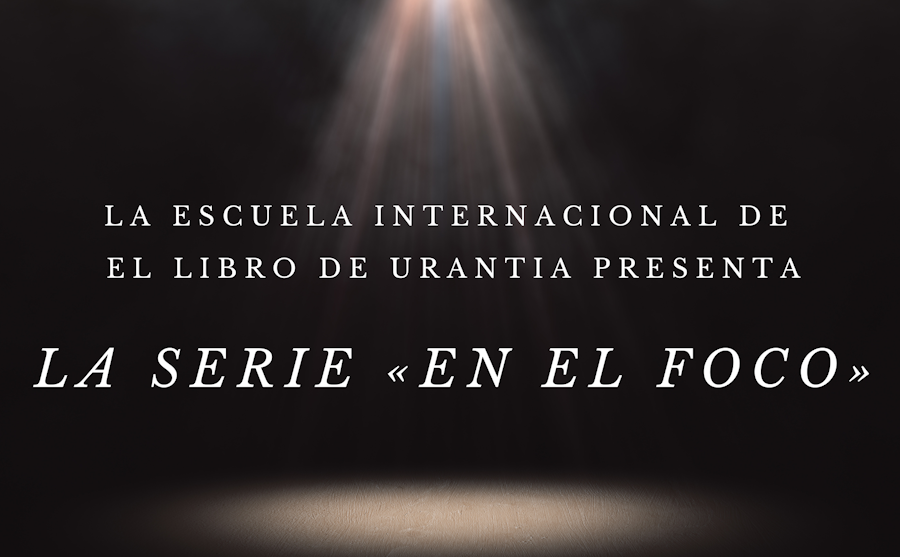
The Urantia Book International School (UBIS) offers a series of “In the Spotlight” webinars related to The Urantia Book or community of readers topics.
In the Spanish language, the sessions last between 60 and 90 minutes, and are held one Saturday a month at 6 pm (Madrid, Paris, Rome time). The presenter gives an introductory presentation on the topic at hand, after which there is an opportunity for attendees to engage in discussion.
This is the presentation scheduled for the month of April:
Day: Saturday April 1
Time: 6:00 p.m. CET (Madrid, Paris, Rome)
Title: The morontia appearances of Jesus
Presents: Francisco Segura Berenguel
Zoom Room: https://urantia-org.zoom.us/j/4457962840
You can see the video of the previous session at this link.
¶ New courses from The Urantia Book International School (UBIS)

A new term begins in April at the Urantia Book International School (UBIS). The registration period begins on Monday, April 17 and ends on Sunday, April 30. The courses begin on Monday 24 with the orientation week.
These are the courses that will be offered in Spanish:
- Lucifer’s rebellion: origin, history and destiny. Facilitates: Olga López. Basic level. Duration: 10 weeks.
- The way home: in the domain of Jesus. Facilitates: Jaime Marco. Intermediate level. Duration: 10 weeks.
- Faith, my faith and the faith of Jesus. Facilitates: José Manuel Díaz. Intermediate level. Duration: 6 weeks.
- Physical energy: manifestation of divine activity. Facilitates: Raúl Framiñán. Advanced level. Duration: 6 weeks.
- The Last Supper and its farewell speeches. Easy: Ulises Pedrique. Advanced level. Duration: 10 weeks.
For more information about the courses, you can visit this page: https://www.urantia.org/es/education/programacion-de-cursos
If you are interested in applying for a course, you must first create an account on the school’s website, http://ubis.urantia.org. This can be done before registration begins.
Spaces are limited, so sign up as soon as possible!
¶ In memory: Seppo Kanerva (1943-2023)
Olga Lopez
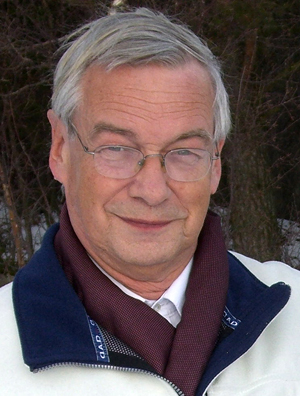
Seppo Kanerva (Finland), former President of Urantia Foundation, departed for the morontia worlds this past Tuesday, March 28, at the age of 79. Seppo was the Finnish translator of The Urantia Book, published in 1993, and was heavily involved in the development of the Urantia community worldwide as President of Urantia Foundation, a position he resigned in November 2008 to rest and enjoy. of family life.
As the Foundation’s head of translations, he was always very involved in the development of the Spanish translation of the book. He himself spoke and wrote fluent Spanish, among other languages. He was a tireless worker and a brilliant thinker, who left us several very profound articles on the book’s teachings and its dissemination (some of his writings are translated into Spanish and available on our website, http://urantia.es).
Have a good trip, Seppo! We look forward to meeting with you and enjoying the many conversations we have pending.
¶ About the Light and Life newsletter

Light and Life is the newsletter of the Urantia Association of Spain. From 2005 to 2016 it was published in PDF format and distributed by mail and email to the association’s reader list, but it is currently distributed in newsletter format from content in HTML format.
If you want to receive the newsletter in your email, contact the association to subscribe to the mailing list.
All papers and news from readers and study groups are welcome, so if you want to share any side work, writing, outline, image, etc., you can send it to the association and we will publish it previous evaluation of its suitability. Likewise, the Communication commission of the board of directors of the Urantia Association of Spain reserves the right to edit it so that it meets minimum spelling quality.